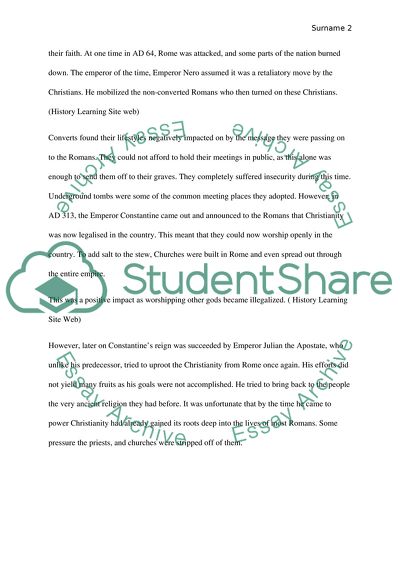Cite this document
(Impacts of Christianity on the Roman and Byzantine Empires Report Example | Topics and Well Written Essays - 1500 words, n.d.)
Impacts of Christianity on the Roman and Byzantine Empires Report Example | Topics and Well Written Essays - 1500 words. https://studentshare.org/history/1850902-the-impact-of-christianity-on-the-roman-and-byzantine-empire
Impacts of Christianity on the Roman and Byzantine Empires Report Example | Topics and Well Written Essays - 1500 words. https://studentshare.org/history/1850902-the-impact-of-christianity-on-the-roman-and-byzantine-empire
(Impacts of Christianity on the Roman and Byzantine Empires Report Example | Topics and Well Written Essays - 1500 Words)
Impacts of Christianity on the Roman and Byzantine Empires Report Example | Topics and Well Written Essays - 1500 Words. https://studentshare.org/history/1850902-the-impact-of-christianity-on-the-roman-and-byzantine-empire.
Impacts of Christianity on the Roman and Byzantine Empires Report Example | Topics and Well Written Essays - 1500 Words. https://studentshare.org/history/1850902-the-impact-of-christianity-on-the-roman-and-byzantine-empire.
“Impacts of Christianity on the Roman and Byzantine Empires Report Example | Topics and Well Written Essays - 1500 Words”. https://studentshare.org/history/1850902-the-impact-of-christianity-on-the-roman-and-byzantine-empire.


